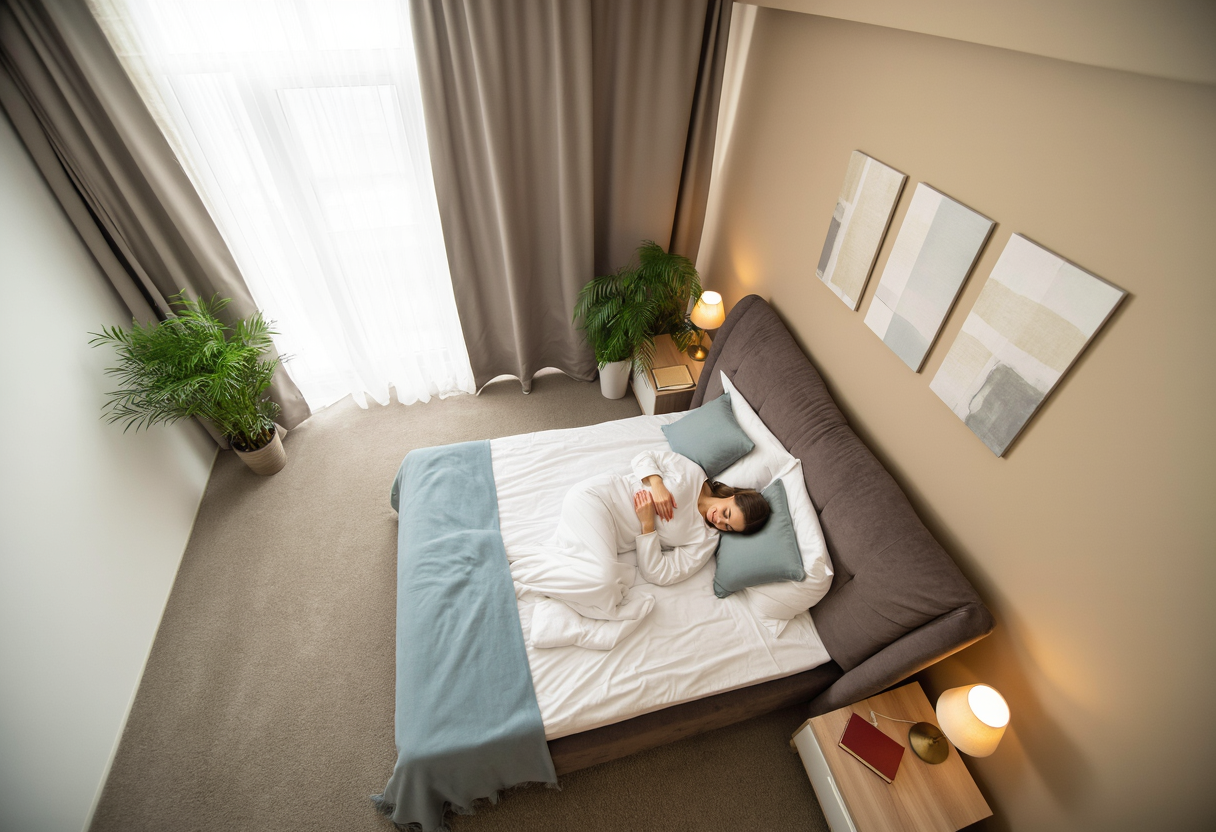5 Proven Techniques for Sleep Improvement for Stress Reduction
Effective sleep improvement for stress reduction can transform your life. This article outlines five proven techniques that harness the power of relaxation, mindfulness, and environmental adjustments to enhance sleep quality. From creating a calming bedtime routine to utilizing breathing exercises, discover how these methods can significantly alleviate stress and promote restorative sleep. Embark on a journey toward better sleep and reduced stress with these practical strategies.
Exploring Stress-Induced Sleep Challenges
Understanding the dynamics of stress-induced sleep challenges is essential for anyone looking to achieve sleep improvement for stress relief. Stress not only affects our waking hours but also infiltrates our nights, leading to disruptions in sleep. Individuals struggling with stress often encounter insomnia or frequent awakenings, resulting in fatigue and decreased productivity. Addressing these challenges begins with recognizing them as legitimate barriers to achieving restful sleep. Exploring the various factors contributing to stress can empower individuals to implement solutions aimed at improving their sleep patterns. This comprehensive understanding is crucial for forming a foundation upon which effective sleep improvement for stress strategies can be built. By educating oneself on the symptoms and effects of stress, individuals can take proactive steps towards alleviating both stress and sleep difficulties.
Calming Bedtime Routines for Enhanced Sleep Improvement for Stress
Establishing calming bedtime routines is one of the most effective tactics for sleep improvement for stress. As the day winds down, engaging in relaxation-inducing activities can create a mental separation between stressors and sleep time. Activities such as reading, journaling, or gentle stretching can signal to the body that it's time to unwind. Additionally, incorporating herbal teas or other calming beverages can enhance this transition. Lighting candles or using essential oils for aromatherapy further contributes to creating a serene atmosphere. These practices facilitate not only falling asleep faster but also improving sleep quality throughout the night. Consistently employing calming bedtime routines can yield transformational results, allowing for deeper sleep and reduced daytime stress.
Breathing Exercises: Your Tool for Stress Relief and Sleep Improvement
Breathing exercises serve as a powerful tool for those seeking sleep improvement for stress. They offer a simple yet effective means of calming the mind and body before sleep. Techniques such as the 4-7-8 breathing method, where individuals inhale for 4 seconds, hold for 7 seconds, and exhale for 8 seconds, can significantly reduce anxiety and promote relaxation. Incorporating these exercises into the nightly routine creates an environment that encourages deeper sleep. Not only do they help manage immediate stress, but regular practice can also reshape overall sleep patterns beneficially. By making breathing exercises a staple of one’s routine, individuals can dramatically enhance their capacity for restorative sleep in the face of stress.
Environmental Adjustments for Sleep Improvement for Stress
Creating an optimal sleeping environment plays a pivotal role in sleep improvement for stress. This includes ensuring that one's bedroom is cool, dark, and quiet, as these factors contribute substantially to sleep quality. Utilizing blackout curtains to block light and white noise machines or earplugs to deter disturbances can set the stage for restful sleep. Moreover, investing in a comfortable mattress and pillows based on personal preferences is key to ensuring physical comfort. By making these environmental adjustments, individuals can create a sanctuary that promotes relaxation and tranquility. It’s remarkable how such simple changes can lead to profound improvements in sleep and, consequently, stress levels.
The Role of Technology in Sleep Improvement for Stress Management
In today's digital age, technology can either hinder or facilitate sleep improvement for stress management. While exposure to screens can disrupt sleep due to blue light emissions, certain applications promote better sleep through relaxation techniques and sleep tracking. Mindfulness and meditation apps offer guided sessions specifically designed to ease stress before bed. Additionally, smart devices can assist in regulating room environments, ensuring optimal sleeping conditions. Leveraging these technologies can create a balanced approach to sleep improvement and stress management. However, it’s essential to find a healthy relationship with technology, using it as a tool rather than a hindrance on the path to restorative sleep.
Conclusion: Designing Your Personalized Sleep Improvement for Stress Plan
Designing a personalized plan for sleep improvement for stress involves combining techniques that resonate with an individual's lifestyle and preferences. This article highlights both fundamental practices and modern approaches, ensuring everyone can find what works best for them. By focusing on calming routines, utilizing breathing exercises, and making necessary environmental adjustments, individuals can reclaim control over their sleep and, in turn, their stress. The journey to enhanced sleep begins with understanding one's unique needs and setting attainable goals, ultimately leading to restful nights and a stress-free life.
